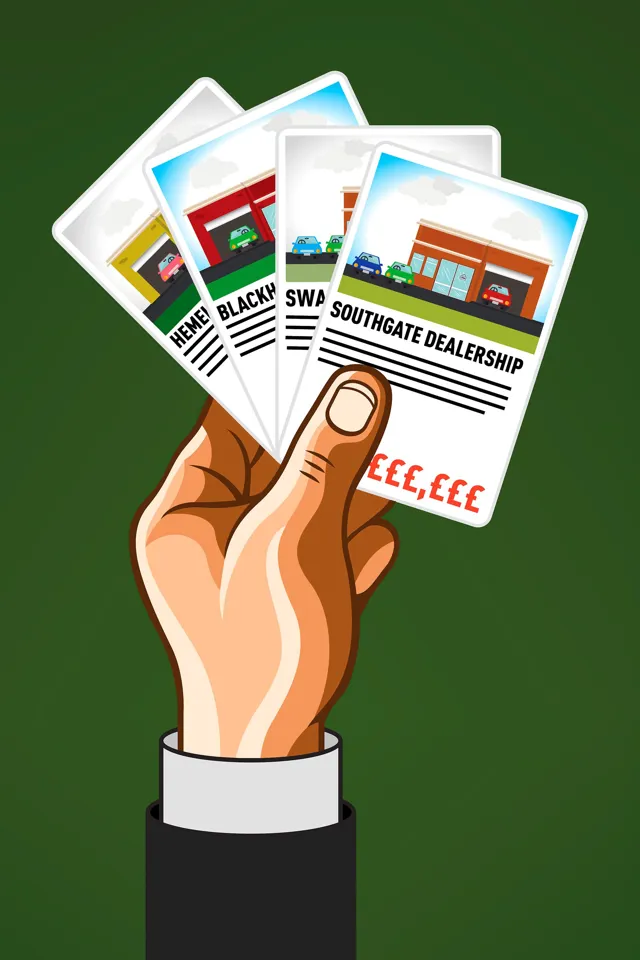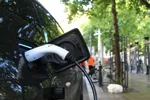Interest rates are at an all-time low, banks are lending more freely, the election is over and many franchised dealers have enjoyed solid profits. So is it time to consider acquisitions?
“With internal growth difficult in a saturated market, expansion and increasing scale via acquisition is the only real route to capitalise on the business model and sweat the asset base. It is now fundamental in enabling a prosperous motor business to leverage its size and react to manufacturer and market demands to optimise its returns,” said Samantha Pettengell, head of motor advisory at MHA MacIntyre Hudson.
Small groups with multiple sites representing one brand may want to broaden their portfolio. Focusing on one brand can bring advantages such as continuity, synergies between sites and the simplicity of dealing with one manufacturer management team, but diversification can spread the risk of a business downturn when the original brand is at a weak point in its product replacement cycle.
That risk became particularly acute during the recent economic crisis as Saab and Daihatsu disappeared completely from the UK, Japanese brands Toyota and Mitsubishi were forced into retreat by unfavourable currency exchange rates, and Peugeot, Citroën, Ford and Vauxhall suffered financial difficulties and lost UK market share to Volkswagen, BMW and Audi.
Paul Daly, partner at UHY Hacker Young, said when acquiring, the overriding principle is to plan and consider what you’d like to achieve in the long term: “Having an acquisition strategy isn’t about thinking three months ahead, it’s about thinking three years ahead. It might cost you a few pounds a year while you’re going through that three- to five-year plan, but it will unlock the true value of the business.”
A key question is whether the manufacturer will be happy with you buying one of its franchisees.
The now defunct Motor Vehicle Block Exemption Regulation (MVBER) gave freedom to franchised dealers to sell their dealership to whomever they chose. However, since its expiry in 2013, the general block exemption now means manufacturers can block the sale of a dealership to someone who does not already hold that franchise. Unless there are restrictions in the franchise contract, they cannot block sales to existing franchisees, but in practice, even dealers already representing a brand will seek approval from their manufacturer partner rather than risk making an acquisition and finding that key stakeholder makes life very difficult.
The most important thing is to get the manufacturer relationships first
Mike Jones, ASE
“The most important thing is to get the manufacturer relationships first, whether with a new manufacturer or your existing one, so that they are happy and welcome your expansion,” said Mike Jones, ASE Global chairman.
“I wouldn’t advise anybody to do a transaction that, at worst, the manufacturer wasn’t ambivalent about. The profitability is such that you need to work together. You can get an awful way down the line only for it to fall over if you’ve not already had those discussions with the manufacturer.”
Pendragon was blocked recently from buying its first Lexus dealership in California, USA, by the manufacturer. However, on other occasions, particularly involving an under-performing dealership or business in distress, the manufacturer may make the introductions. Marshall Motor Group’s third Seat business was added in 2013 through Seat UK’s intervention as the carmaker sought to remove an indebted sponsored dealer, Grants Seat.
Manufacturer involvement may put pressure on the acquirer, however, so the use of independent advisers specialising in automotive transactions can help to ensure a better outcome for the long term. The chairman of a small ‘local hero’ dealer group recently told AM about getting a call from Vauxhall prior to the 2008 recession asking it to take over a failing dealership, with manufacturer funding support. The due diligence and acquisition was rushed, which led to 18 months of difficult integration and stress for the chairman.
“We didn’t really appreciate what we were taking on. We’ve learned from the experience though, and are planning properly for our future growth,” the chairman told AM.
Preparing those plans is essential. UHY Hacker Young automotive partner David Kendrick said a long-term plan to grow the business over the next three to five years allows dealers to build their management team, to court the brands desired, and, most importantly, to consider the reason for the growth strategy. A dealer may be acquiring more dealerships to make more money and to limit its exposure to individual franchises’ weakness, but they ought to also consider their end-game. If the buying dealer group is seeking to exit in 10 years’ time, the strategic actions it makes during the interim may affect the ultimate attraction and value of that group.
An example is a volume brand dealer group filling an empty showroom with a niche franchise that doesn’t really fit with its overall long-term strategy. Instead, the owner could look at leasing the property out for alternate use, still generating an income stream, but one that does not damage the core motor retail business.
It ultimately comes down to the strategy of each individual dealer group. The lower-performing franchises do have appeal for some regional groups or family businesses that wish to grow and diversify their portfolios, and often these will be looking for bolt-on opportunities that do not come with a massive price ticket that only a top 50 AM100 dealer group can afford.
Daly said he has examined the return on investment achieved from a low-performing brand and found it can be similar to that of the growing premium brands because the investment required is far less. However, there seems to be more appetite at the moment to generate immediate scale with a major acquisition of groups, which can be integrated effectively as a new division.
Jones at ASE Global said the acquisition strategy of the likes of Cambria Automobiles and Vertu Motors has evolved. The initial focus on buying struggling dealerships with an aim to turn them around within a few years has shifted now that the industry has enjoyed a resurgence. Focus is being placed on businesses that are immediately earnings-enhancing, and prestige brand businesses in particular.
His advice is to ensure the due diligence delves into the intricacies of the target dealership. “Find out exactly what it is you’re buying, not just making sure the assets are there, but as we move into a ‘bricks and clicks’ world there are many more intangibles to look into,” Jones added.
These would include the quality and size of its customer database and whether the seller will keep a copy to continue as an authorised repairer, plus the volume of its service plan customers and its digital engagement.
Jones also warned that an acquirer must consider how robust are the recent financials upon which the price is being based. In ASE’s experience of motor trade transactions, there have been some where sellers have had reduced targets or guaranteed bonus over a period, which would have boosted the dealership’s financial performance. “This may lead to an overpayment for the business if the due diligence is inadequate, so your advisers must trawl through the records,” Jones said.
Getting the property deal right
 The question of property is a critical point of most motor retail business transactions. A freehold property will form a substantial part of the transaction price, and a leasehold may have further implications if there are few years left on the lease agreement and the acquirer faces rushed negotiations with the landlord in order to secure longer-term premises.
The question of property is a critical point of most motor retail business transactions. A freehold property will form a substantial part of the transaction price, and a leasehold may have further implications if there are few years left on the lease agreement and the acquirer faces rushed negotiations with the landlord in order to secure longer-term premises.
Daly said a pertinent question for the prospective purchaser of the business, particularly one new to the franchise, is over the current status of the brand corporate identity at the property. Depending on the manufacturer, significant CI changes costing six-figure sums may come every eight to 10 years and interior restyles may be implemented even more frequently than that, so the prospective acquirer should factor this into the deal negotiations.
Ensure the dealership is in the right location for the brand’s network development plan. Kendrick: “Do you want to be buying a business that needs relocating in the next three years? If so, fine but can you find a suitable property in that timescale, can you fund it and build it? It’s a completely different investment appraisal there from a deal where the buyer has confirmation that the premises are more than suitable for the next decade.”
As well as the property costs, there are operational costs that a prospective acquirer must also factor into its calculations. If the showroom requires a major refurbishment, leading to staff working from a temporary facility for three months, this is likely to have a negative impact on its future financial performance and should also feature in the negotiations.
Pettengell at MHA warned that eventually motor will catch up with its digital future so purchasers should be open to how property is transacted. Leasing from the current owners will significantly reduce the funding requirements, she added.
Acquisition activity in 2015
June
♦ Vertu Motors paid £1.5 million for MSB Škoda in Darlington.
May
♦ Eden Motor Group acquired WMG Hyundai in Reading for an undisclosed sum.
♦ Vertu Motors bought Bury Land Rover from Pendragon for £7m, including £7m goodwill.
April
♦ Motorline Group bought Arrows Maserati in Cardiff for an undisclosed sum.
March
♦ Vantage Motor Group acquired David Ian Škoda in Morecambe for an undisclosed sum.
February
♦ Vantage Motor Group acquired Bradford Honda from Pendragon for an undisclosed sum.


















Login to comment
Comments
No comments have been made yet.